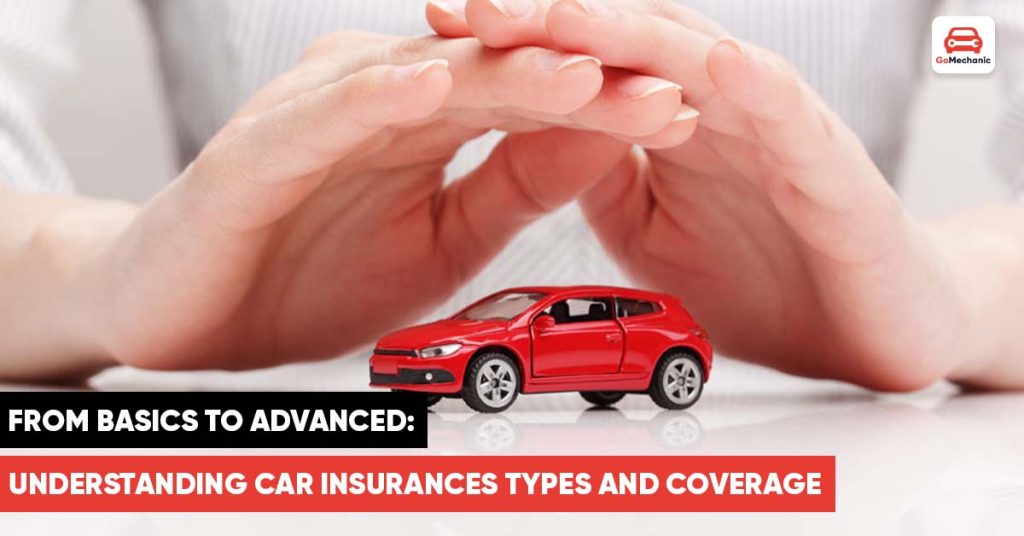Car Insurance in a Gig Economy 2024

Car insurance is a key expense for gig workers. The challenge is getting them full coverage at a reasonable price.
Gig workers and the companies that hire them need to work together to solve this problem. One way to do that is through automated insurance verification and re-verification. MeasureOne is an example of such a platform.
Understanding the Basic
Gig workers are not all the same, and their needs should be addressed with a variety of coverage options. Whether they’re driving for Uber or Postmates or designing websites, gig workers need to have policies that match the risks and opportunities of their work.
Insurance companies can make this easier by incorporating a seamlessly embedded car insurance experience into their app. For example, they can allow customers to connect their app during the quoting process and have that data automatically used to generate an accurate policy for them.

This type of verification is also useful for reducing insurance admin costs, as it eliminates the need to manually verify and scour documentation. Additionally, it allows businesses to monitor gig workers’ insurance on a regular basis, which helps mitigate risk and reduces costs by removing the need for manual processes. MeasureOne’s platform-integrated insurance verification solution makes it easy to do all of this, and more. It’s designed to be a fast, convenient way for both parties to verify auto insurance coverage for the gig economy.
The Big Economy Challenge
As gig work continues to grow, the insurance industry is faced with many challenges. One of the biggest challenges is providing coverage that fits the needs of gig workers. Whether they are driving passengers for Uber or delivering food for Postmates, gig workers need car insurance that will protect them in the event of an accident.
Another challenge is determining which party should be responsible for covering liability for gig workers. Some companies may misclassify workers as independent contractors rather than employees, which can lead to legal ramifications in the event of an accident. Insurers can help minimize risk by ensuring that gig workers have commercial auto insurance that covers both business and personal use.
Lastly, many gig workers don’t know that they need special car insurance. This can be a major issue for the insurance industry, as it can result in lower coverage levels and higher costs. Insurers can address this problem by educating gig workers about the need for specialized coverage and by offering solutions that meet their needs.
Read More Articles: Oil Prices Rise On Moderate US Inflation Data Strong Demand
Rideshare Insurance
Whether you drive for Uber or Lyft, or another transportation network company (TNC), it’s important to have rideshare insurance. This special coverage prevents gaps in your car insurance, and protects you from being dropped by your insurer for driving for a TNC without letting them know. Rideshare insurance is typically offered as a policy add-on or its own standalone policy for drivers who work for TNCs.
TNCs usually provide commercial auto insurance while a passenger is in the vehicle, but this only covers you when the app is on and you’re waiting for a customer or on your way to pick one up (Period 2). This can leave you with expensive coverage gaps, especially if your car gets damaged.
Rideshare insurance provides extra protection for you and your passengers if an accident occurs, as well as property damage coverage to pay for your car if it is stolen or damaged by severe weather or other perils while you’re not transporting a passenger (Period 1). Some of the top insurers include rideshare insurance with their policies.
Delivery Drivers
When you drive for a ride-sharing or delivery service, like Uber, Lyft, DoorDash, or Instacart, you’re essentially using your personal car for commercial purposes. If you get into an accident during this time, your personal insurance might not cover the damages.
This is because these services consider their drivers independent contractors rather than employees. As a result, they aren’t eligible for the same benefits and protections as full-time company employees.

This is a problem that many gig workers don’t know about, and it can lead to serious consequences if they’re involved in an accident while on the job. The good news is that some insurance companies offer specialized gig work coverage. This coverage is designed to bridge the gap between your personal car insurance and the coverage provided by the transportation network company. Some of these policies even provide first-party coverage, including passenger accident and non-paying passenger protection. But this coverage is limited and may have a deductible. You’ll want to speak with a licensed professional about these options. The most common option is a rideshare endorsement for your personal policy.
Supplemental Polices
Gig workers often lack access to the type of group-based benefits traditionally offered through employment. These benefits include health insurance, dental and vision coverage, and employer-matched health savings accounts. This gap is not insurmountable, however, as many insurers are offering supplemental policies to address it.
A growing number of state lawmakers and stakeholders are considering legislation aimed at providing protections for gig workers. These measures often seek to ensure fair taxation and a social safety net for non-traditional employees. They also may offer support for new work models that strike a balance between maintaining gig economy flexibility and providing standard worker protections.
For instance, several major gig companies have backed state initiatives that would allow them to offer app-based drivers benefits like health care stipends and a partial earnings floor, while still allowing them to retain their status as independent contractors. However, these efforts have run into opposition from unions and pro-worker advocates, who argue that reclassifying gig economy workers as employees is an effective way to safeguard their rights.
Read More Articles: CBN Loan 2024 Requirements Guidelines – N500M to 50 million
Cost Considerations
Gig workers are a diverse group with many different needs and situations. To better serve them, insurers should look for ways to offer flexible insurance policies with short-term covers. For example, someone who makes a delivery for a pizza company might not need their standard auto policy to cover them, so it could make sense for them to take out a pay-as-you-go cover that only covers them for the time they’re working.
Other coverages that might be useful for gig workers include errors and omissions coverage, which pays out in the event that they give incorrect information or advice to their clients. It’s a good idea for gig workers to consider this as it can protect them from costly negligence or civil lawsuits.
Car insurance for gig economy workers is a complex issue that requires collaboration between employers and employees to mitigate risks and ensure a productive working relationship. For example, forward-thinking companies are implementing automated tools to streamline insurance verification processes and reduce claims administration costs for their gig workers.
Take to Steps
Gig workers need auto insurance coverage that takes their unique needs into account. To make sure their personal and business driving is covered, they need to communicate with their insurer during the onboarding or re-verification process. Automated insurance verification processes help streamline this step, improving the onboarding experience and maintaining risk-free operations.
Lastly, they should also consider a supplemental policy to make sure they have enough protection in the event of an accident. This type of policy may be more expensive than a standard policy, but it can help cover costs that are not covered by the primary car insurance policy.
Additionally, a telematics system can help Gig workers improve their driving performance and lower their rates. By analyzing data, these systems can identify risks like hard braking, harsh acceleration and speeding. By reducing these risks, drivers can save money on their premiums and reduce crashes and injuries. This can help make Gig economy jobs safer for everyone on the road.
Conclusion
Gig workers’ fluid employment status means that they don’t have the safety net that traditional employees enjoy, especially when it comes to insurance. To combat this, insurers could provide flexible policies that cover them on a short-term basis. This would be possible by leveraging the platforms that these workers use to access work. For instance, when someone searches for personal motor insurance on a price comparison site, the provider could highlight that standard policies don’t cover rideshare or delivery drivers.
Moreover, if employers know that their workforce is prone to accidents and injuries, they can also help them get short-term disability insurance coverage. This will not only improve their workers’ quality of life but also reinforce the symbiotic relationship between employer and worker.
In addition, utilizing technology, such as telematics, can simplify the car insurance process for gig workers by providing a clearer picture of driving habits and risks. This allows companies to provide a fairer and more accurate pricing for their policies. In addition, it will speed up the claims resolution process. This will save time and resources for both gig drivers and their insurance companies, as well as provide them with peace of mind.

